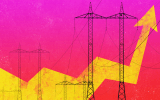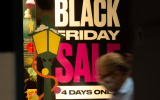
One of Australia’s biggest exports to the US faces potential triple-digit tariffs after President Donald Trump vowed to expand his trade war.
Trump has laid out plans to impose 200 per cent tariffs on drug imports, threatening Australia’s third-most significant export to America.
His proposal on Wednesday (Australian time) follows lobbying by the powerful US pharmaceutical sector, which has long taken issue with Australia’s drug subsidy scheme. It wants Trump to act so it can sell drugs to Australians for more.
His announcement could be seen as a way for the US to chip away at the Pharmaceutical Benefits Scheme in exchange for a tariff exemption or trade deal.
But Treasurer Jim Chalmers has ruled that out.
“Our Pharmaceutical Benefits Scheme is not something that we’re willing to trade away or do deals on,” he told ABC radio on Wednesday.
“They’re obviously very concerning developments, we are talking about billions of dollars of exports to the US.
“Our pharmaceuticals industry is much more exposed to the US market, and that’s why we’re seeking, urgently seeking, some more detail on what’s been announced.”
Trump also revealed a 50 per cent tariff on copper imported to the US. This poses less of a problem for Australia as the US accounts for less than 1 per cent of its copper exports.
By comparison, Australia sent $2.1 billion in medicinal and pharmaceuticals to the US in 2024, according to the Australia Bureau of Statistics.
Trump’s latest remarks come after he unveiled an increased 25 per cent tariff on items from Japan and Korea, which are Australia’s second- and third-biggest export markets.
Although Australia has so far been spared, it remained vulnerable to flow-on effects, Monash University economics lecturer Isaac Gross said.
One of Australia’s main exports to Japan and South Korea is iron ore, which is used to make vehicles. Many of those are sent to the US.
But if cars sale fall off in the American market, that could mean less demand for Australian iron ore, which could also affect mining giants like BHP and Rio Tinto.
“The principal way that affects the Australian economy is through a lower Australian dollar and less tax revenue,” Dr Gross said.
“That would affect Australians as a whole … it would definitely hurt the government’s budget line and reduce economic activity, in especially the mining states.”
There could be some upside for Australian consumers as South Korean or Japanese goods that would normally have been exported to the US might be sent to Australia at a discounted price.
But Chalmers maintained the escalating trade tensions around the world were a “substantial concern” and that tariffs posed a risk to global growth.
Some nations have tried to strike trade deals with the US to get certainty amid the tariff volatility.
However, many are growing frustrated, according to University of Sydney associate professor David Smith.
“They think that negotiations are going in one direction and then Trump makes a sudden announcement that takes it in another direction,” he said.
Prime Minister Anthony Albanese has faced increasing pressure to schedule a face-to-face meeting with Trump and push for a total tariff exemption.
But it is unclear if that would work.
Japanese Prime Minister Shigeru Ishiba met Trump in February, but by July Trump revealed his increased tariffs on the Asian nation and appeared to skip over its leader’s name, calling him “Mr Japan” in a recent interview.
“I can see why the [Albanese] would be seeking a face-to-face meeting, but it doesn’t have the same kind of certainty that it had in the past,” Smith said.
“Now we’re in a situation where the US is trying to negotiate 100 trade deals at once – it’s clearly beyond the capacity of American negotiators.
“Trump is getting very frustrated. Trump’s blaming other countries for the slowness of the negotiations and now he’s lashing out.”
-with AAP










